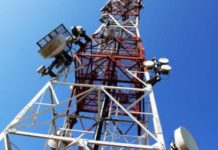The Chief Executive Officer of the MTN Nigeria Communications Plc, Karl Toriola has given reasons why telecom companies want the current tariff rates in Nigeria to be increased by 100 percent and have already applied for such increase.
The MTN CEO, who spoke today, January 2, in an interview, decried the rising cost of operations which is threatening their survival.
Though the regulatory body, Nigerian Communications Commission (NCC) has refused to approve the tariff hike because of hardship faced by consumers, Toriola said: “The cost we are expending are actually exceeding our revenue.
“Even though we are seeing revenue growth and there is no way that the industry can continue to sustain itself and provide the required quality of service under this structure.
“We have put forward the request of approximately 100 per cent in tariff increases to the regulators. I doubt they are going to approve that quantum of increases because they are very sensitive to the current economic situation in the country.
“But we are hopeful and optimistic that the realities are steering us in the face and the right decision will be taken for the sustainability of the industry.”
The MTN boss admitted that the government has been supportive of the industry with regulations like the National Infrastructure Bill which protects telecom infrastructures as national assets.
The CEO said: “Yes everyone in Nigeria has gone through difficult time in the last few years due to inflation and devaluation, etc, but the challenge that we face is not about profitability. It is about sustainability.
“If you imagine a company that four or five years ago earned N1 trillion and was making 10 per cent profit- N100 billion. The total cost put together was N900 billion. “Subsequently, two or three things happened like devaluation of the naira. Official exchange has gone up from about N420/$ or N450/$ to N1550/$ at the end of the year. So, that has driven our cost structures up drastically. “Diesel has gone from pre-COVID-19 times of N200-N300/litre to N1000; petrol has gone up several folds. Power generation and the cost of procuring material.”
He said that raw materials in the sector include batteries, fibre cables and base station towers, adding that the network service providers also pay software licensing fees for the networks and that the costs have risen astronomically.
The tariff hikes cover all telecom services, including voice and data.
The Minister of Communication and Digital Economy, Bosun Tijani in a recent interview, said that there is more to the communication sector than the tariff review.
Source Whistle Blower












